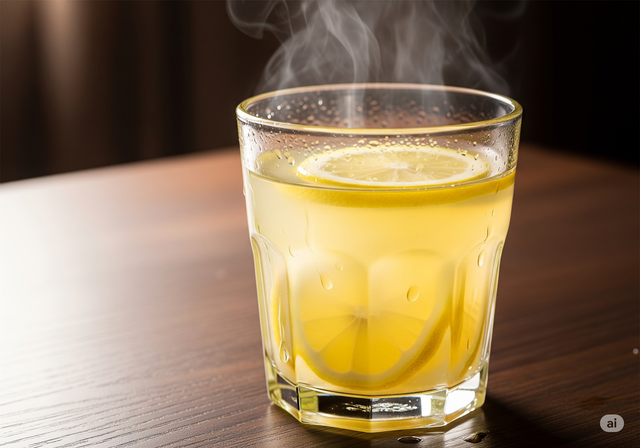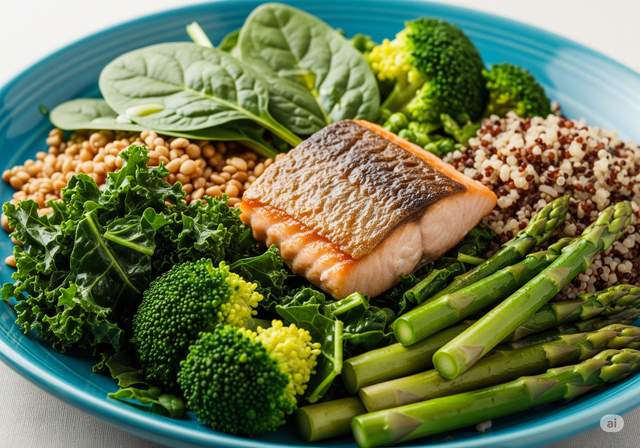Some people report feeling better, having a lighter stomach, or having lower liver enzymes after drinking lemon water regularly. This has led to the belief that lemon water can treat fatty liver disease, an increasingly common metabolic disease in modern society.
However, according to Dr. Nguyen Phoi Hien, University of Medicine and Pharmacy Hospital, Ho Chi Minh City - Facility 3, this viewpoint needs to be reconsidered from the perspective of orthodox medicine and based on scientific evidence.

Can warm lemon water cure fatty liver?
Photo: AI
There is no evidence that lemon juice cures fatty liver.
Non-Alcoholic Fatty Liver Disease (NAFLD) is a condition in which excessive fat accumulates in liver cells, unrelated to alcohol consumption. This disease is closely related to obesity, lipid metabolism disorders, type 2 diabetes and metabolic syndrome. Prolonged fatty liver can lead to hepatitis, fibrosis, even cirrhosis and liver cancer.
Currently, there is no specific drug approved by the FDA (USA) or the Vietnamese Ministry of Health to treat non-alcoholic fatty liver disease. International recommendations, such as those of the American Association for the Study of Liver Diseases (AASLD), emphasize that the main treatment for this disease is appropriate weight loss, dietary adjustment, regular physical activity, and control of associated metabolic factors.
Several studies have examined the effects of foods rich in vitamin C and antioxidants on liver health, but to date, no randomized controlled studies have demonstrated that drinking lemon juice alone can reduce liver fat or improve liver disease.
Lemons contain vitamin C and citric acid, which can aid in mild digestion and hydrate the body. However, claiming that it can “dissolve fatty liver” or “cleanse the liver” is a simplistic interpretation that is not true in terms of pathogenesis.
Information dissemination and expert opinion
Some people think:
- Lemon juice can "detoxify the liver".
- The acidity of lemon helps "break down excess fat", thereby helping to reduce fatty liver.
- Lemon stimulates bile production, which helps digest fats.
- Users feel lighter stomach, brighter skin, so think liver disease has improved.
However, according to experts:
- The liver is a naturally effective detoxifying organ, no need for "detox" drinks.
- Fat in the liver is the result of a complex metabolic disorder that cannot be dissolved by the mild acid in lemons.
- Bile production is a complex endocrine process that is independent of lemon.
- Feeling better may come from increasing your morning water intake, reducing your sweets intake, and avoiding alcohol… not from the lemon water directly.
In fact, much content circulating on social networks does not have specific scientific citations, or is exaggerated to sell "detox" and "liver detox" products of unknown origin.
Lemon juice abuse can be harmful
Drinking lemon water in moderation, diluted and after meals is a habit that is not harmful to normal people. However, if:
- Drinking concentrated lemon juice on an empty stomach can irritate the stomach lining.
- People with a history of gastric or duodenal ulcers may experience pain and nausea.
- Using too much lemon juice during the day can cause tooth enamel erosion.
- People taking medication to treat metabolic diseases should be careful when consuming foods with strong acids.
- For people with liver disease, especially when liver enzymes are high or there are signs of hepatitis, using "detox water" without a prescription can increase the burden on the liver, even leading to dangerous complications.

Eat lots of green vegetables, fiber, whole grains, fatty fish... to help prevent fatty liver.
Photo: AI
What to do to prevent and control fatty liver?
According to Dr. Nguyen Phoi Hien, the current treatment for fatty liver is based on the following principles:
Lose weight properly
- Losing just 5-10% of your body weight can significantly improve liver fat.
- Do not fast or use extreme weight loss methods.
Scientific diet
- Limit fried foods, refined sugar, and soft drinks.
- Eat lots of green vegetables, fiber, whole grains, and fatty fish.
- Minimize alcohol consumption, even for people with non-alcoholic fatty liver disease.
Increase physical activity
- Maintain at least 150 minutes of physical activity each week, such as brisk walking, swimming, cycling.
- It is advisable to combine both aerobic and endurance exercises.
Regular health check-up
- Monitor liver enzymes (ALT, AST), blood lipids, blood glucose.
- Perform regular liver ultrasound, especially for people with risk factors such as obesity and diabetes.
Drinking warm lemon water every morning is a habit that can be good for digestion and hydration of the body if applied properly. However, considering this as a treatment for fatty liver is not in accordance with modern medicine and has many potential risks if abused or ignored by specialized treatment.
Source: https://thanhnien.vn/uong-nuoc-chanh-am-buoi-sang-co-tri-duoc-gan-nhiem-mo-185250720171014882.htm





























![[Photo] National Assembly Chairman Tran Thanh Man visits Vietnamese Heroic Mother Ta Thi Tran](https://vphoto.vietnam.vn/thumb/1200x675/vietnam/resource/IMAGE/2025/7/20/765c0bd057dd44ad83ab89fe0255b783)




































































Comment (0)